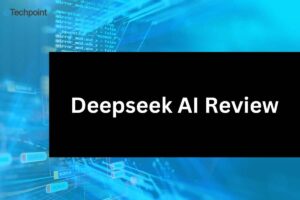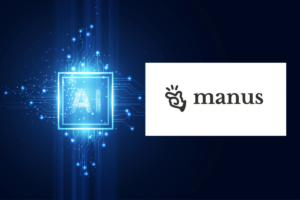Beijing Supports AI Startup Manus in Search for China’s Next DeepSeek

Manus: A Rising Star in China’s AI Landscape
Introduction to Manus
On Tuesday, the Chinese startup Manus took a significant step by registering its AI assistant tailored for the domestic market. This event marked Manus’ first appearance in a state media broadcast, underscoring the Chinese government’s strategy to promote local AI companies that have garnered attention on the international stage. Manus has been recognized as a strong contender following the success of another Chinese company, DeepSeek, which developed AI models comparable to those of established U.S. firms but at significantly lower costs.
The Emergence of Manus
Recently, Manus gained widespread attention on X (formerly Twitter) after unveiling what it claims to be the world’s first general AI agent. This agent stands out for its ability to make autonomous decisions and complete tasks with minimal input, in contrast to popular AI chatbots like ChatGPT and DeepSeek. This development sparks intrigue and hope among investors looking for the next groundbreaking startup that could alter the global technology landscape.
Government Support and Regulatory Framework
As Manus prepares to launch its offerings in China, it appears to be receiving substantial backing from the Beijing government, mirroring the support given to DeepSeek. Notably, China’s state broadcaster CCTV featured Manus in a segment that explained the differences between its AI agent and DeepSeek’s chatbot. This visibility is significant, as it often indicates government endorsement, which can greatly influence public perception and market success.
On the same day, the municipal government of Beijing announced the successful registration of a Chinese version of one of Manus’ earlier products, an AI assistant named Monica. This registration is a crucial regulatory step, as the Chinese government has implemented strict guidelines for generative AI applications to ensure they do not generate content deemed sensitive or harmful.
Compliance with Regulations
Chinese authorities require that all generative AI apps comply with specific regulations. These rules are in place to supervise the type of content generated, ensuring it aligns with the government’s standards. As Manus navigates this regulatory landscape, the successful registration of its AI assistant indicates that it is taking the necessary steps to align with these requirements, a critical factor for achieving sustainable growth in the domestic market.
Strategic Partnerships and Future Prospects
Recently, Manus announced a strategic partnership with the team associated with Alibaba’s Qwen AI models. This collaboration could significantly enhance the rollout of Manus’ AI agent in China. Currently, the agent is available only to users with invitation codes, and it has attracted a waiting list of nearly 2 million. This growing interest highlights the potential impact of Manus’ innovations in the AI sector, particularly if the partnership with Alibaba leads to broader accessibility and improved functionalities.
Competition and Market Dynamics
Manus operates in a competitive landscape. Its claim of creating a general AI agent capable of autonomous task execution positions it as a serious competitor to both domestic and international AI developers. The interest from investors and the support from the government signify a growing trend in China where local AI firms are being encouraged to innovate and compete on a global scale. The reception of Manus’ offerings will be crucial, especially as it attempts to carve out a niche in a market dominated by established players.
By prioritizing compliance and forming strategic partnerships, Manus is poised to not only make a mark within China but also challenge the status quo in the global AI arena. As developments continue to unfold, the actions of Manus and the reactions from both the government and the market will be closely watched by those interested in the future of artificial intelligence.





